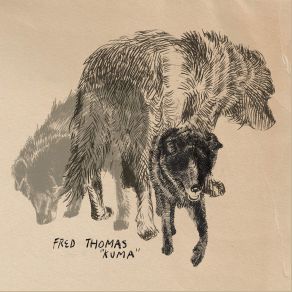Kuma
Download links and information about Kuma by Fred Thomas. This album was released in 2012 and it belongs to Rock, Indie Rock, Alternative genres. It contains 12 tracks with total duration of 43:54 minutes.

|
|
|---|---|
| Artist: | Fred Thomas |
| Release date: | 2012 |
| Genre: | Rock, Indie Rock, Alternative |
| Tracks: | 12 |
| Duration: | 43:54 |
| Buy it NOW at: | |
| Buy on iTunes $9.99 | |
Tracks
[Edit]| No. | Title | Length |
|---|---|---|
| 1. | Well | 5:26 |
| 2. | Corduroy River | 4:01 |
| 3. | Your Love Is Everywhere | 2:44 |
| 4. | Leave It Alone | 4:07 |
| 5. | Waterfall | 4:00 |
| 6. | Magazines (Inst.) | 1:39 |
| 7. | College | 4:31 |
| 8. | Home On a Plane | 2:42 |
| 9. | Soft Talking | 3:44 |
| 10. | I Dreamed You in Magazines | 4:38 |
| 11. | Her Hands Were Holograms | 3:15 |
| 12. | People | 3:07 |
Details
[Edit]"Well" opens Fred Thomas' solo album Kuma much in the way "Out on the Weekend" kicked off Neil Young's Harvest — it ambles out of the gate at a pace that might be best called deliberate, with a loose but implacable groove that's half Levon Helm and half Laurel Canyon, but it moves with a very real sense of purpose, and the tune reveals a richly textured beauty that's leavened by the occasional squeal of a harmonica and the graceful peal of Thomas' electric guitar. The lyrics even subtly name-check "Out on the Weekend," suggesting Kuma may be intended as Thomas' tip of the hat to Mr. Young, though the similarities seem to be a matter of lessons learned rather than a conscious effort to ape Young's style. The noisy guitar figures on "Corduroy River" or the creaky piano of "Home on a Plane" wouldn't be out of place on one of Young's electric albums, and the ragged report of Crazy Horse flickers through the well-ordered chaos of "Magazine," but for the most part, Kuma reflects Thomas' well-documented pop sensibilities more than Young's flinty but impassioned songcraft, and the sweet melancholy of the strings on "Soft Talking" and "Waterfall," the minimal organ accompaniment of "Your Love Is Everywhere," and the lo-fi poppy buzz of "Her Hands Were Holograms" indelibly mark this music as his work and his vision. If Thomas shares anything stylistically with Neil Young, it's that both musicians are never afraid to say what they mean and let their hearts and souls speak on record, and that's what holds Kuma's 12 songs together and makes it effective — whether the songs speak of joy, sadness, contemplation, or action, the music communicates clearly and passionately regardless of style or approach, and the rumbled humanity of Thomas' vocals sounds honestly lived in, and all the more evocative for it. Kuma walks a fine line between the rootsy tone of '70s folk-rock and the creative restlessness of contemporary indie pop, but finds a common ground in the emotional strength of this music, and this is a strong, engaging effort from one of the Midwest's true left-of-the-dial heroes.